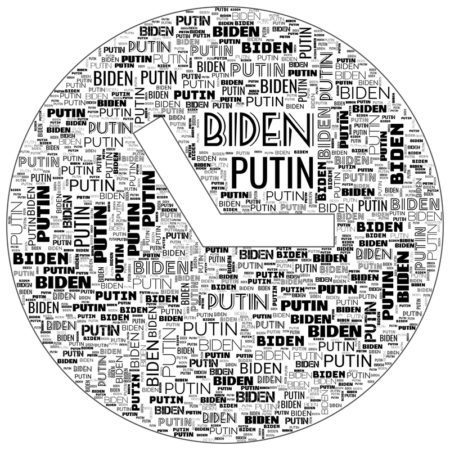
President Joe Biden seems to have won the first round by pushing Russia’s Vladimir Putin to start withdrawing at least a handful of troops massed along Ukraine’s border.
He may have set the ball rolling for the de-escalation he demanded from the start after Putin made the fateful choice of presenting a military fait accompli to Biden to coerce the 30 US-led NATO allies.
But the potential for catastrophic war remains because Putin has not given an inch on his central demands that Ukraine should never be allowed into NATO and the alliance must withdraw its bases to the lines in 1997 before its eastward expansion.
If Russian forces dismantle, Putin will simply say that their military drills have ended until the next time. He can ratchet up the pressure at any later time.
Biden’s intense narrative of Russian aggression and imminent war has not taken root even inside Ukraine where leaders have likened it to panic-mongering while Moscow has rejected it as hysteria.
The heated war of words and the threats of unprecedented economic sanctions to deter Russia are also pulling the rug from under Biden’s pivot towards China, which is meant to deter military invasion of Taiwan and aggressive actions against US forces in surrounding seas.
Biden very clearly said this week what Putin and the Russian people want to hear. “The United States and NATO are not a threat to Russia. Ukraine is not a threat to Russia. Neither the US nor NATO have missiles in Ukraine. We do not — do not — have plans to put them there, as well. We’re not targeting the people of Russia. We do not seek to destabilize Russia. To the citizens of Russia: you are not our enemy,” he declared.
If this is completely true, some among European allies especially in France, Germany and Italy question why Biden is unwilling to put similar words on paper with his presidential signature. That would constitute a firm assurance from his government and future American governments to the Russian regime and people.
It would also untie Putin from his deepening dependence on China’s Xi Jinping while opening an excellent path to dampen Xi’s ability to wean Asian and developing countries away from Western influence.
Trust or at least peace between the West and Russia will change geopolitics for the better by driving a wedge with China, even if a Trump clone besieges the White House again.
However, Biden’s choice of words could be just a diplomatic turn of phrase to say only to Russian citizens that they are “not our enemy” while leaving the door open to destabilizing Putin’s regime.
Biden cannot impose painful enough economic and other sanctions against Putin’s Russia short of war without the unflinching collaboration of his Western allies. But that collaboration is far from certain.
Perhaps many in Washington with bipartisan support hope that at some point the US will succeed in pushing Putin’s authoritarian regime into the dustbins of history as happened to the former Soviet Union.
If so, Biden is embarking on a very risky strategy because this time France and Germany, the two key military powers of continental Europe (excluding Britain), are not fully with Biden or anti-Russians in Congress.
His urgent appeals to Western democratic values to keep allies together are getting a mixed hearing because Europeans are profoundly fragmented even though their rhetoric is still unified behind Biden.
That unity will not hold when push comes to shove partly because not all are functioning democracies that agree with Biden’s values. Some genuine democracies like France and Germany are unwilling to pay the heavier price economic sanctions on Russia would impose on their people compared with Americans.
Others are less liberal and worry that their space for fashioning democracy to their own ends differently from the US model would narrow considerably.
American exporters of shale gas and oil will reap vast windfalls from Biden’s proposed draconian cuts to oil and gas supplies to Europe from Russia.
But the cost for European consumers will be very high and social unrest could cause governments to fall, starting with France’s Emmanuel Macron in presidential elections in April.
Currently, Biden does not have enough prestige outside the US to keep allies glued to policies designed to deter and damage both Russia and China.
Many friendly countries no longer believe in White House promises because of the short-sighted and chaotic nature of US politics. And the apparent unreliability of American governments when the President changes.
No one doubts that Putin and Xi are determined to erode US primacy. But almost all would prefer not to bring war or economic penalties to their doorsteps to support Washington until trust is earned again.
Illustration 241574559 © Onassisworld | Dreamstime.com
















